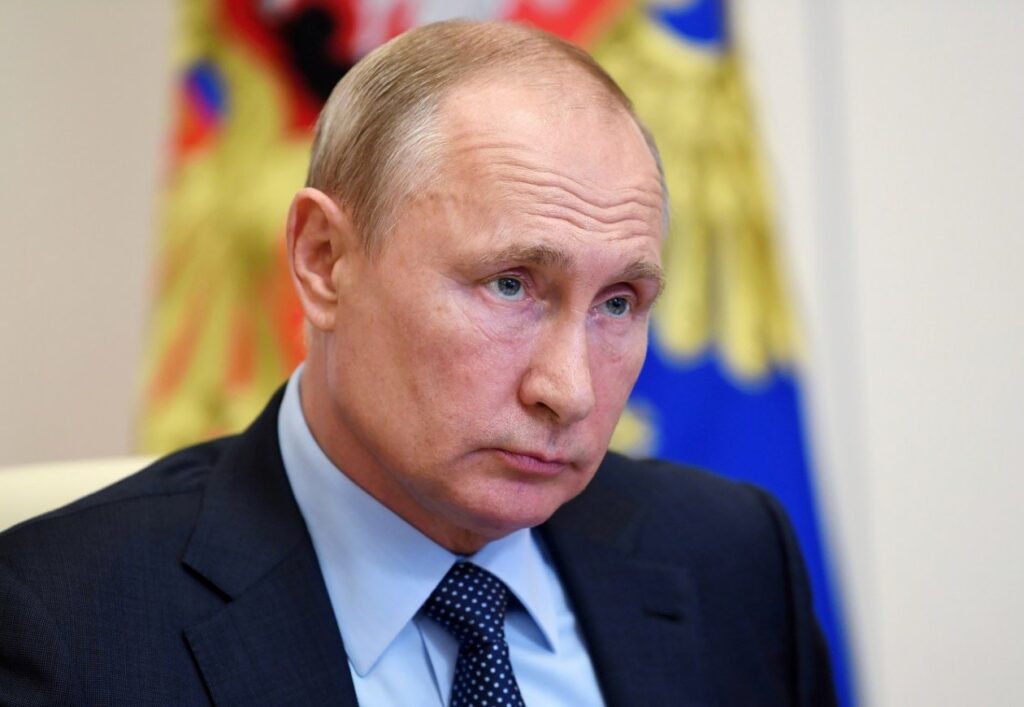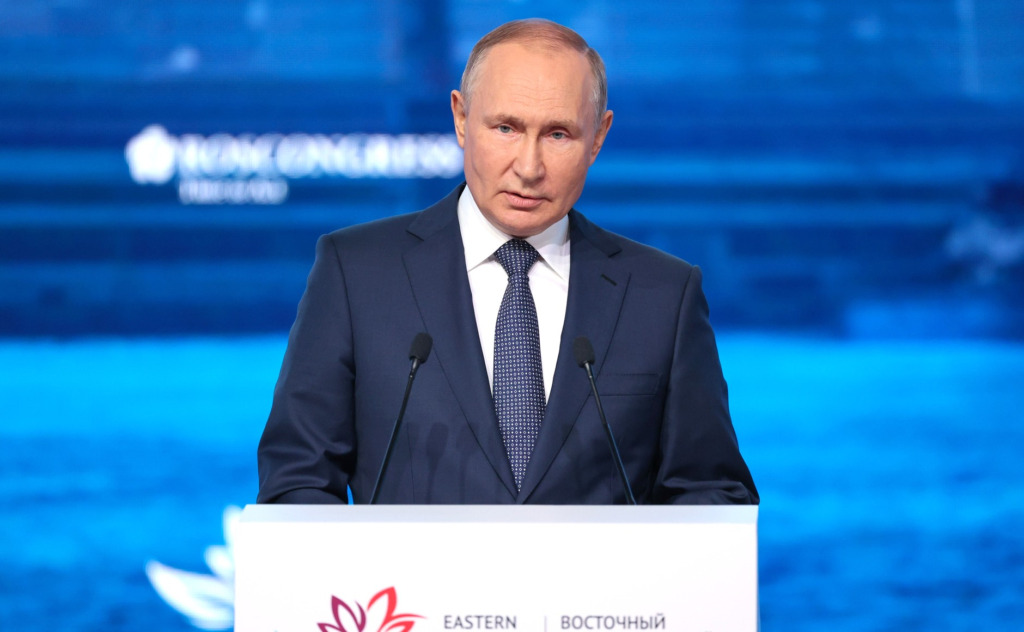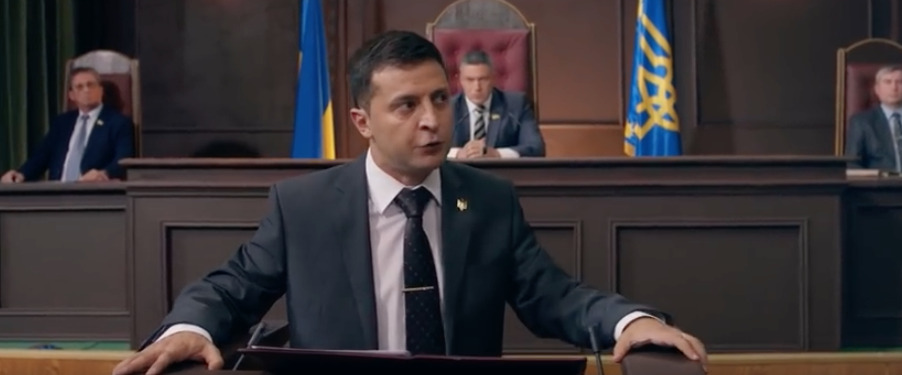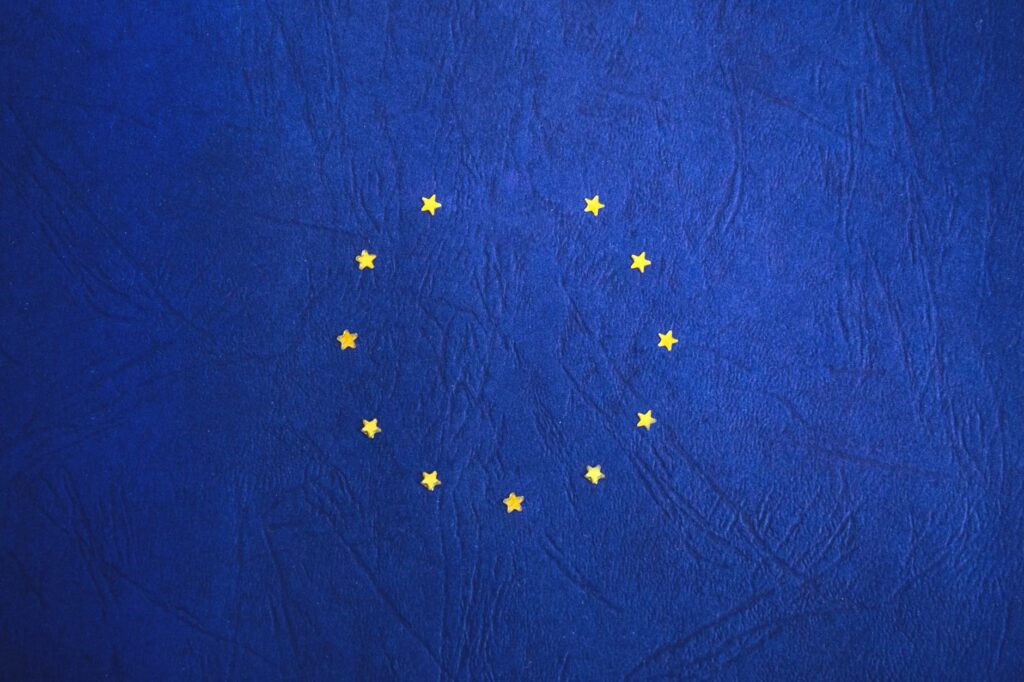Note: Due to a vacation and then a move in recent weeks, I’m playing catchup on recent news and events. – Natylie
By Max Blumenthal, The Grayzone, 9/26/23
By celebrating a Waffen-SS volunteer as a “hero,” Canada’s Liberal Party highlighted a longstanding policy that has seen Ottawa train fascist militants in Ukraine while welcoming in thousands of post-war Nazi SS veterans.
Canada’s second most powerful official, Chrystia Freeland, is the granddaughter of one of Nazi Germany’s top Ukrainian propagandists.
In the Spring of 1943, Yaroslav Hunka was a fresh-faced soldier in the 14th Grenadier Division of the Waffen-SS Galicia when his division received a visit from the architect of Nazi Germany’s genocidal policies, Heinrich Himmler. Having presided over the battalion’s formation, Himmler was visibly proud of the Ukrainians who had volunteered to support the Third Reich’s efforts.
80 years later, the Speaker of Canada’s parliament, Anthony Rota, also beamed with pride after inviting Hunka to a reception for Volodymyr Zelensky, where the Ukrainian president lobbied for more arms and financial assistance for his country’s war against Russia.
“We have in the chamber today Ukrainian war veteran from the Second World War who fought for Ukrainian independence against the Russians and continues to support the troops today even at his age of 98,” Rota declared during the September 22 parliamentary event in Ottawa.
“His name is Yaroslav Hunka but I am very proud to say he is from North Bay and from my riding of Nipissing-Timiskaming. He is a Ukrainian hero, a Canadian hero, and we thank him for all his service,” Rota continued.
Gales of applause erupted through the crowd, as Prime Minister Justin Trudeau, Zelensky, Deputy Prime Minister Chrystia Freeland, Canadian Chief of Defense Staff Gen. Wayne Eyre and leaders of all Canadian parties rose from their seats to applaud Hunka’s wartime service.
Since the exposure of Hunka’s record as a Nazi collaborator – which should have been obvious as soon as the Speaker announced him – Canadian leaders (with the notable exception of Eyre) have rushed to issue superficial, face-saving apologies as withering condemnations poured in from Canadian Jewish organizations.
The incident is now a major national scandal, occupying space on the cover of Canadian papers like the Toronto Sun, which quipped, “Did Nazi that coming.” Meanwhile, Poland’s Education Minister has announced plans to seek Hunka’s criminal extradition.
The Liberal Party has attempted to downplay the affair as an accidental blunder, with one Liberal MP urging her colleagues to “avoid politicizing this incident.” Melanie Joly, Canada’s Foreign Minister, has forced Rota’s resignation, seeking to turn the the Speaker into a scapegoat for her party’s collective actions.
Trudeau, meanwhile, pointed to the “deeply embarrassing” event as a reason to “push back against Russian propaganda,” as though the Kremlin somehow smuggled an nonagenarian Nazi collaborator into parliament, then hypnotized the Prime Minister and his colleagues, Manchurian Candidate-style, into celebrating him as a hero.
To be sure, the incident was no gaffe. Before Canada’s government and military brass celebrated Hunka in parliament, they had provided diplomatic support to fascist hooligans fighting to install a nationalist government in Kiev, and oversaw the training of contemporary Ukrainian military formations openly committed to the furtherance of Nazi ideology.
Ottawa’s celebration of Hunka has also lifted the cover on the country’s post-World War Two policy of naturalizing known Ukrainian Nazi collaborators and weaponizing them as domestic anti-communist shock troops. The post-war immigration wave included the grandfather of Deputy Prime Minister Chrystia Freeland, who functioned as one of Hitler’s top Ukrainain propagandists inside Nazi-occupied Poland.
Though Canadian officialdom has worked to suppress this sordid record, it has resurfaced in dramatic fashion through Hunka’s appearance in parliament and the unsettling contents of his online diaries.

“We welcomed the German soldiers with joy”
The March 2011 edition of the journal of the Association of Ukrainian Ex-Combatants in the US contains an unsettling diary entry which had gone unnoticed until recently.
Authored by Yaroslav Hunka, the journal consisted of proud reflections on volunteering for the 14th Grenadier Division of the Waffen-SS Galicia. Hunka decribed the Nazi Wehrmacht as “mystical German knights” when they first arrived in his hometown of Berezhany, and recalled his own service in the Waffen-SS as the happiest time in his life.
“In my sixth grade,” he wrote, “out of forty students, there were six Ukrainians, two Poles, and the rest were Jewish children of refugees from Poland. We wondered why they were running away from such a civilized Western nation as the Germans.”
The Jewish Virtual Library details the extermination of Berezhany’s Jewish population at the hands of the “civilized” Germans: “In 1941 at the end of Soviet occupation 12,000 Jews were living in Berezhany, most of them refugees fleeing the horrors of the Nazi war machine in Europe. During the Holocaust, on Oct. 1, 1941, 500–700 Jews were executed by the Germans in the nearby quarries. On Dec. 18, another 1,200, listed as poor by the Judenrat, were shot in the forest. On Yom Kippur 1942 (Sept. 21), 1,000–1,500 were deported to Belzec and hundreds murdered in the streets and in their homes. On Hanukkah (Dec. 4–5) hundreds more were sent to Belzec and on June 12, 1943, the last 1,700 Jews of the ghetto and labor camp were liquidated, with only a few individuals escaping. Less than 100 Berezhany Jews survived the war.”
When Soviet forces held control of Berezhany, Hunka said he and his neighbors longed for the arrival of Nazi Germany. “Every day,” he recalled, “we looked impatiently in the direction of the Pomoryany (Lvov) with the hope that those mystical German knights, who give bullets to the hated Lyakhs are about to appear.” (Lyakh is a derogatory Ukrainian term for Poles).
In July 1941, when the Nazi German army entered Berezhany, Hunka breathed a sigh of relief. “We welcomed the German soldiers with joy,” he wrote. “People felt a thaw, knowing that there would no longer be that dreaded knocking on the door in the middle of the night, and at least it would be possible to sleep peacefully now.”
Two years later, Hunka joined the First Division of the Galician SS 14th Grenadier Brigade – a unit formed under the personal orders of Heinrich Himmler. When Himmler inspected the Ukrainian volunteers in May 1943 (below), he was accompanied by Otto Von Wachter, the Nazi-appointed governor of Galicia who established the Jewish ghetto in Krakow.

“Your homeland has become so much more beautiful since you have lost – on our initiative, I must say – those residents who were so often a dirty blemish on Galicia’s good name, namely the Jews…” Himmler reportedly told the Ukrainian troops. “I know that if I ordered you to liquidate the Poles … I would be giving you permission to do what you are eager to do anyway.”
“Hitler’s elite torturers and murderers have been passed on RCMP orders”
Following the war, Canada’s Liberal government classified thousands of Jewish refugees as “enemy aliens” and held them alongside former Nazis in a network of internment camps enclosed with barbed wire, fearing that they would infect their new country with communism. At the same time, Ottawa placed thousands of Ukrainian veterans of Hitler’s army on the fast-track to citizenship.
The Ukrainian Canadian newsletter lamented on April 1, 1948, “some [of the new citizens] are outright Nazis who served in the German army and police. It is reported that individuals tattoooed with the dread[ed] SS, Hitler’s elite torturers and murderers have been passed on RCMP orders and after being turned down by screening agencies in Europe.”
The journal described the unreformed Nazis as anticommunist shock troops whose “‘ideological leaders’ are already busy fomenting WWIII, propagating a new world holocaust in which Canada will perish.”
In 1997, the Canadian branch of the Simon Wiesenthal Center charged the Canadian government with having admitted over 2000 veterans of the 14th Volunteer Waffen-SS Grenadier Division.
That same year, 60 Minutes released a special, “Canada’s Dark Secret,” revealing that some 1000 Nazi SS veterans from Baltic states had been granted citizenship by Canada after the war. Irving Abella, a Canadian historian, told 60 Minutes that the easiest way to get into the country “was by showing the SS tattoo. This proved that you were an anti-Communist.”
Abella also alleged that Prime Minister Pierre Trudeau (Justin’s father) explained to him that his government kept silent about the Nazi immigrants “because they were afraid of exacerbating relationships between Jews and Eastern European ethnic communities.”
Yaroslav Hunka was among the post-war wave of Ukrainian Nazi veterans welcomed by Canada. According to the city council website of Berezhany, he arrived in Ontario in 1954 and promptly “became a member of the fraternity of soldiers of the 1st Division of the UNA, affiliated to the World Congress of Free Ukrainians.”
Also among the new generation of Ukrainian Canadians was Michael Chomiak, the grandfather of Canada’s second-most-powerful official, Chrystia Freeland. Throughout her career as a journalist and Canadian diplomat, Freeland has advanced her grandfather’s legacy of anti-Russian agitation, while repeatedly exalting wartime Nazi collaborators during public events.

Canada welcomes Hitler’s top Ukrainian propagandists
Throughout the Nazi German occupation of Poland, the Ukrainian journalist Michael Chomiak served as one of Hitler’s top propagandists. Based in Krakow, Chomiak edited an antisemitic publication called Krakivs’ki visti (Krakow News), which cheerled the Nazi invasion of the Soviet Union – “The German Army is bringing us our cherished freedom,” the paper proclaimed in 1941 – and glorified Hitler while rallying Ukrainian support for the Waffen-SS Galicia volunteers.
Chomiak spent much of the war living in two spacious Krakow apartments that had been seized from their Jewish owners by the Nazi occupiers. He wrote that he moved numerous pieces of furniture belonging to a certain “Dr. Finkelstein” to another aryanized apartment placed under his control.

In Canada, Chomiak participated in the Ukrainian Canadian Committee (UCC), which incubated hardcore nationalist sentiment among diaspora members while lobbying Ottawa for hardline anti-Soviet policies. On its website, the UCC boasted of receiving direct Canadian government assistance during World War Two: “The final and conclusive impetus for [establishing the UCC] came from the National War Services of Canada which was anxious that young Ukrainians enlist in military services.”
The UCC’s first president Volodymyr Kubijovych, had served as Chomiak’s boss back in Krakow. He also played a part in the establishment of the 14th Grenadier Division of the Waffen-SS Galicia, announcing upon its formation, “This historic day was made possible by the conditions to create a worthy opportunity for the Ukrainians of Galicia, to fight arm in arm with the heroic German soldiers of the army and the Waffen-SS against Bolshevism, your and our deadly enemy.”
Freeland nurtures media career as undercover regime change agent in Soviet-era Ukraine
Following his death in 1984, Chomiak’s granddaughter, Chrystia Freeland, followed in his footsteps as a reporter for various Ukrainian nationalist publications. She was an early contributor to Kubijovych’s Encyclopedia of Ukraine, which whitewashed the record of Nazi collaborators like Stepan Bandera, referring to him as a “revolutionary.” Next, she took a staff position at the Edmonton-based Ukrainian News, where her grandfather had served as editor.
A 1988 edition of Ukrainian News (below) featured an article co-authored by Freeland, followed by an ad for a book called “Fighting for Freedom” which glorified the Ukrainian Waffen-SS Galician division.

“Countless ‘tendentious’ news stories about life in the Soviet Union, especially for its non-Russian citizens, had her fingerprints as Ms. Freeland set about making a name for herself in journalistic circles with an eye to her future career prospects,” the Canadian Broadcasting Corporation (CBC) reported.
Citing KGB files, the CBC described Freeland as a de facto intelligence agent: “The student causing so many headaches clearly loathed the Soviet Union, but she knew its laws inside and out – and how to use them to her advantage. She skillfully hid her actions, avoided surveillance (and shared that knowledge with her Ukrainian contacts) and expertly trafficked in ‘misinformation.’”
In 1989, Soviet security agents rescinded Freeland’s visa when they caught her smuggling “a veritable how-to guide for running an election” into the country for Ukrainain nationalist candidates.
She quickly transitioned back to journalism, landing gigs in post-Soviet Moscow for the Financial Times and Economist, and eventually rising to global editor-at-large of Reuters – the UK-based media giant which today functions as a cutout for British intelligence operations against Russia.
Canada trains, protects Nazis in post-Maidan Ukraine
When Freeland won a seat as a Liberal member of Canada’s parliament in 2013, she established her most powerful platform yet to agitate for regime change in Russia. Milking her journalistic connections, she published op-eds in top legacy papers like the New York Times urging militant support from Western capitals for Ukraine’s so-called “Revolution of Dignity,” which saw the violent removal of a democratically elected president and his replacement with a nationalist, pro-NATO government in 2014.
In the midst of the coup attempt, a group of neo-Nazi thugs belonging to the C14 organization occupied Kiev’s city council and vandalized the building with Ukrainian nationalist insignia and white supremacist symbols, including a Confederate flag. When riot police chased the fascist hooligans away on February 18, 2014, they took shelter in the Canadian embassy with the apparent consent of the Conservative administration in Ottawa. “Canada was sympathizing with the protesters, at the time, more than the [Ukrainian] government,” a Ukrainian interior ministry official recalled to the Canadian Broadcasting Corporation.

Official Canadian support for neo-Nazi militants in Ukraine intensified after the 2015 election of the Liberal Party’s Justin Trudeau. In November 2017, the Canadian military and US Department of Defense dispatched several officers to Kiev for a multinational training session with Ukraine’s Azov Battalion. (Azov has since deleted the record of the session from its website).
Azov was controlled at the time by Adriy Biletsky, the self-proclaimed “White Leader” who declared, “the historic mission of our nation in this critical moment is to lead the White Races of the world in a final crusade for their survival… A crusade against the Semite-led Untermenschen.”
As Nazi family history surfaces, Freeland lies to the public
Back in Canada, Freeland’s troubling family history was surfacing for the first time in the media. Weeks after she was appointed in January 2017 as Foreign Minister – a post she predictably exploited to thunder for sanctions on Russia and arms shipments to Ukraine – her grandfather’s role as a Nazi propagandist in occupied Poland became the subject of a raft of reports in the alternative press.
The Trudeau government responded to the factual reports by accusing Russia of waging a campaign of cyber-warfare. “The situation is obviously one where we need to be alert. And that is why the Prime Minister has, among other things, encouraged a complete re-examination of our cyber security systems,” Public Safety Minister Ralph Goodale declared.
Yet few, if any, of the outlets responsible for excavating Chomiak’s history had any connection to Russia’s government. Among the first to expose his collaborationism was Consortium News, an independent, US-based media organization.
For her part, Freeland deployed a spokesperson to lie to the public, flatly denying that “the minister’s grandfather was a Nazi collaborator.”
When Canadian media quoted several Russian diplomats about the allegations, Freeland promptly ordered their deportation, accusing them of exploiting their diplomatic status “to interfere in our democracy.”
By this time, however, her family secrets had tumbled out of the attic and onto the pages of mainstream Canadian media. On March 7, 2017, the Globe and Mail reported on a 1996 article in the Journal of Ukrainian Studies confirming that Freeland’s grandfather had indeed been a Nazi propagandist, and that his writing helped fuel the Jewish genocide. The article was authored by Freeland’s uncle, John-Paul Himka, who thanked his niece in its preface for helping him with “problems and clarifications.”
“Freeland knew for more than two decades that her maternal Ukrainian grandfather was the chief editor of a Nazi newspaper in occupied Poland that vilified Jews during the Second World War,” the Globe and Mail noted.
After being caught on camera this September clapping with unrestrained zeal alongside hundreds of peers for a Ukrainian veteran of Hitler’s SS death squads, Freeland once again invoked her authority to scrub the incident from the record.
Three days after the embarrassing scene, Freeland was back on the floor of parliament, nodding in approval as Liberal House leader Karina Gould introduced a resolution to strike “from the appendix of the House of Commons debates” and from “any House multimedia recording” the recognition made by Speaker Anthony Rota of Yaroslav Hunka.
Thanks to decades of officially supported Holocaust education, the mantra that demands citizens “never forget” has become a guiding light of liberal democracy. In present day Ottawa, however, this simple piece of moral guidance is now treated as a menace which threatens to unravel careers and undermine the war effort in Ukraine.
**Note: Polish officials have announced that they are seeking extradition of Hunka to Poland for war crimes.



